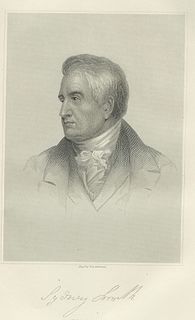A Quote by Halldor Laxness
Love of, and respect for, the humble routine of everyday life and its creatures was the only moral commandment which carried conviction when I was a child.
Related Quotes
If I were to speak your kind of language, I would say that man's only moral commandment is: Thou shalt think.
But a 'moral commandment' is a contradiction in terms. The moral is the chosen, not the forced; the understood, not the obeyed.
The moral is the rational, and reason accepts no commandments.
I see a world in the future in which we understand that all life is related to us and we treat that life with great humility and respect. I see us as well as social creatures, and when I began to look back and say, ‘what is the fundamental bottom line for us as social creatures?’I couldn’t believe it because it seemed so hippy dippy, but it was Love. Love is the force that makes us fully human.
Of them all, it was the true love. Of them all, it was the best. That other sumptuous love which made one drunk, which one longed for, envied, believed in, that was not life. It was what life was seeking; it was a suspension of life. But to be close to a child, for whom one spent everything, whose life was protected and nourished by one's own, to have that child beside one, at peace, was the real, the deepest, the only joy.
The great French Impressionist painter Renoir, right at the end of his very long life, said to a friend, "I am just now learning to paint." Renoir carried his gift with a humility which realized how much he still had to learn. Anyone who goes deeply into a field in life and realizes this, gains a sense of proportion that can only make you humble.
A truly Christian love, either to God or men, is a humble broken-hearted love. The desires of the saints, however earnest, are humble desires. Their hope is a humble hope; and their joy, even when it is unspeakable and full of glory, is a humble broken-hearted joy, and leaves the Christian more poor in spirit, and more like a little child, and more disposed to a universal lowliness of behaviour.
To dissociate the child from love is, for our species, a methodological error: contraception, which is to make love without making a child; artificial (in vitro) fertilization, which is to make a child without making love; abortion, which is to unmake the child; and pornography, which is to unmake love: all these, to varying degrees, are incompatible with natural law.
We are the only alive creatures that are mortals; the animals are immortal, which is why they live stupidly. We are the only creatures that know that we will die, but that is a gift. It's important because we know we have to take advantage and squeeze life and understand why we're here in the first place.
Fr. Amphilochios, the geronta or elder on the island of Patmos when I first stayed there, would have been in full agreement. Do you know, he said, that God gave us one more commandment, which is not recorded in Scripture? It is the commandment love the trees. Whoever does not love trees, so he believed, does not love God. When you plant a tree, he insisted, you plant hope, you plant peace, you plant love, and you will receive God's blessing.
You asked for a loving God: you have one... The consuming fire Himself, the Love that made the worlds, persistent as the artist's love for his work and despotic as a man's love for a dog, provident and venerable as a father's love for a child, jealous, inexorable, exacting as love between the sexes. How this should be, I do not know: it passes reason to explain why any creatures, not to say creatures such as we, should have a value so prodigious in their Creator's eyes.



































